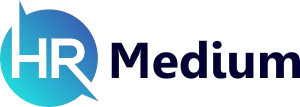The importance human resource department plays in an organization is crucial to the growth of the business. They are typically in charge of finding the right talents that can drive growth.
It takes a lot of planning to get the right people for the right job. HR planning plays a strategic importance. Their decisions help the company to meet business needs and customer demands.
If you’re looking for a strategic HR planning procedure, then you are at the right place. Do you know what the four best strategic HR planning are? What is important for your organization? Here are the four points.
- Current capacity
- Forecasted requirements
- Talent development strategies
- Talent assessment
Read on to get a better idea of and importance of strategic HR planning in your business organization.
Current capacity
Every strategy starts with understanding what we have right now. By assessing the current staff status HR professionals can get a clear idea of what they are lacking in terms of resources. Each department has different requirements when it comes to talent.
This information can help them plan the acquisition, promotions, demotions, or firing. The HR can assess the staff with self-reviews, peer reviews, questionnaires, performance reviews, or a combination of all of the methods. This assessment helps in the HR planning process that comes next.
Forecasted Requirements
With the right list of resource inventory, HR professionals can forecast future needs. It answers some questions like:
- Are the current resources enough?
- Do the company need more resources?
- Can efficiency and productivity be increased with training?
- Do the company need to recruit more qualified people?
Based on the data and insights gathered, the HR team can prepare strategies like demand forecasting, supply forecasting, or a combination of both. They can prepare hiring plans based on this data.
Talent Development Strategies
HR planning is incomplete without talent development strategies. It is a crucial part of the strategic human resource management process, which includes the following.
- Recruitment
- Selection
- Hiring
- Training and development
- Employee remuneration and administrations
- Performance management
- Employee relations
Each stage listed above needs to be planned strategically as it can directly affect the productivity of the organization. Rigorous and proper development strategies can help improve productivity, efficiency, culture, and professionalism in the company.
Talent Assessment
HR planning does not end even after the selection and training of the candidates. It also entails the talent assessment of all the new and present employees periodically. This continuous assessment helps the organization to ensure the highest standards of productivity and efficiency. As it is directly involved with the success of the business, this step is really crucial.

